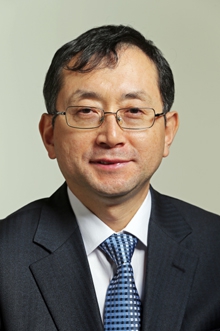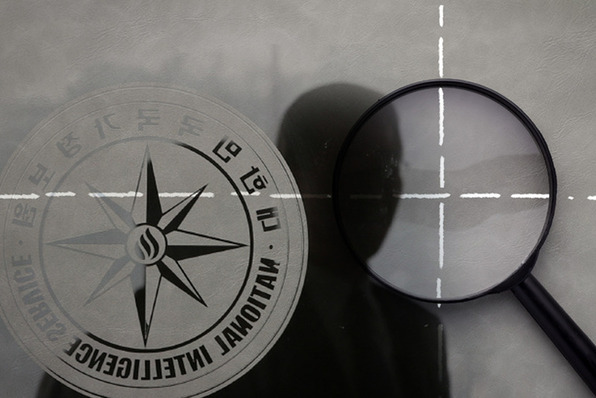Posted on : Dec.5,2017 17:10 KST
Modified on : Dec.5,2017 17:13 KST
Exceptional measures needed to ensure that the spy agency acts as a law abiding organization
Opposition lawmaker “H” made a call to his lover from the airport after returning to South Korea. The two of them quickly met at a hotel for a tryst. It ended up playing right into “their” hands. They had been lying in wait after H’s remarks before the National Assembly incurred the President’s wrath. H’s calls were monitored at the airport, and a camera was set up in the hotel room to capture physical evidence. “They” were also behind H’s eventual arrest on adultery charges, securing a complaint from the husband after replaying the call and video to him when he refused to believe his wife had been unfaithful. The year was 1982.
They’re supposed to be working for security and the national interest, but their priority from the outset has been the security of the administration. On the day of the presidential election in 1967, they set up a sniper in a two-story girls’ high school facing the home of opposition candidate Yun Po-son, giving orders to “shoot him if he’s elected.” They’re also the ones who abducted and threatened to kill Kim Dae-jung two years after he put a scare into Park Chung-hee by coming with 900,000 votes in the 1971 election.
The Roh Moo-hyun administration (2003 – 08) did what it could to shake off 40 years of misdeeds, setting up a “committee for improvement through investigation of past National Intelligence Service incidents.” With the publication of their truth committee’s report in Oct. 2007, they asked for the public’s forgiveness and “one last chance,” promising to become an intelligence agency for the public, not the administration. Everyone believed espionage frame-ups and election interference were a thing of the past.
It didn’t take long to learn the public had been hoodwinked. The online political commenting scandal in the run-up to the 2012 presidential election marked just the beginning of revelations that would see nine years of misdeeds laid bare. The dark traditions of “working in the shadows” have yet to disappear.
During the Park Chung-hee administration, around 100 “entertainers” visited a safe house in Seoul’s Gungjeong neighborhood each year, or around ten a month, Kim Choong-sik claimed in the book “Directors of Namsan” – and “they” were the ones paying the women for their time. Forty years later, Park’s daughter siphoned off around 4 billion won (US$3.7 million) from their special activity expenses for “personal use.” She is likely to have requested it first, having had some idea of what happened during her father’s day. Korean Central Intelligence Agency (KCIA) director Lee Hu-rak, who stashed political funds in secret Swiss accounts for his son-in-law to manage, said, “You have to expect to get your hands dirty.” Forty years later, the agency’s director provided a safehouse for his wife’s social party, paying a billion won (US$920,000) in interior costs alone.
The same NIS figures who set up a truth committee to “repent” are also the ones who brought back illegal surveillance and operations, prying into the private lives of members not only of opposition parties and civic groups critical of the administration, but also culture and arts figures, scholars, and even people in their own ruling party. They rationalized this by equating protecting the president with protecting national security.
They also brought back anachronistic Red-baiting tactics. Parties, groups, and members of the public calling to uphold democracy according to the Constitution were arbitrary branded as “leftists,” with a Cold War logic equating left-wing with “pro-North Korean”: enemies. They are the ones who developed culture and arts community blacklists and “scenarios” for driving left-leaning figures out of broadcasting, and who developed methodologies for a new brand of “whitelist” including right-wing groups and big corporations. Keeping pace with the online era, they established government-controlled internet media and a unit of around 3,000 people working to post messages – all of it for the sake of “national security.”
Now they have presented their own proposed amendment of the law to reform themselves. It includes the most historic changes to date, restricting the agency’s functions to gathering “overseas” and “North Korea-related” intelligence while relinquishing authority even for anti-Communist investigations. Coming seemingly out of the blue, without any alternatives, they had many wondering just who was supposed to be catching the spies. While they may not have intended it, they got off on the wrong foot. There are also real questions about how much of an actual commitment this reflects.
The laws have been tweaked slightly every time one of the many cases of fabrication, law-breaking, or corruption erupts, but the public does not feel very much has changed. The NIS’s authority to investigate cases of praise and incitement of anti-government organizations according to the National Security Act was briefly abolished. New veto rights were instituted, allowing the agency to defy improper orders; they proved ineffective. The fact that even dispatched prosecutors – legal experts – took part in deceiving their fellow prosecutors with false offices, knowing it was against the law, gives an indication of the climate.
 |
|
Kim Ri-taek, editorial writer
|
Just as they had set up a camera in a hotel room 35 years earlier, so they dredged up details about the out-of-wedlock child of a prosecutor-general who had incurred the administration’s disfavor. Despite the ridiculous claims that this was “something overheard by chance in a washroom,” dozens of people quietly played along, colleagues included. It’s an organization that claims to be clearing away old vices, yet insists on keeping its own main server. These kinds of bad habits will be tough to break without a massive overhaul of the organization and its powers.
It is extremely dangerous to leave our national security and public’s human rights to the good will of the President or intelligence agency chief without some adjustments to the law. This amendment is a long time in coming, and the changes need to be at least as great as it proposes. It’s going to take an exceptional law to stop them from breaking the law again. It’s the least we can do not to be fooled again like we were ten years ago.
By Kim Ri-taek, editorial writer
Please direct questions or comments to [english@hani.co.kr]










